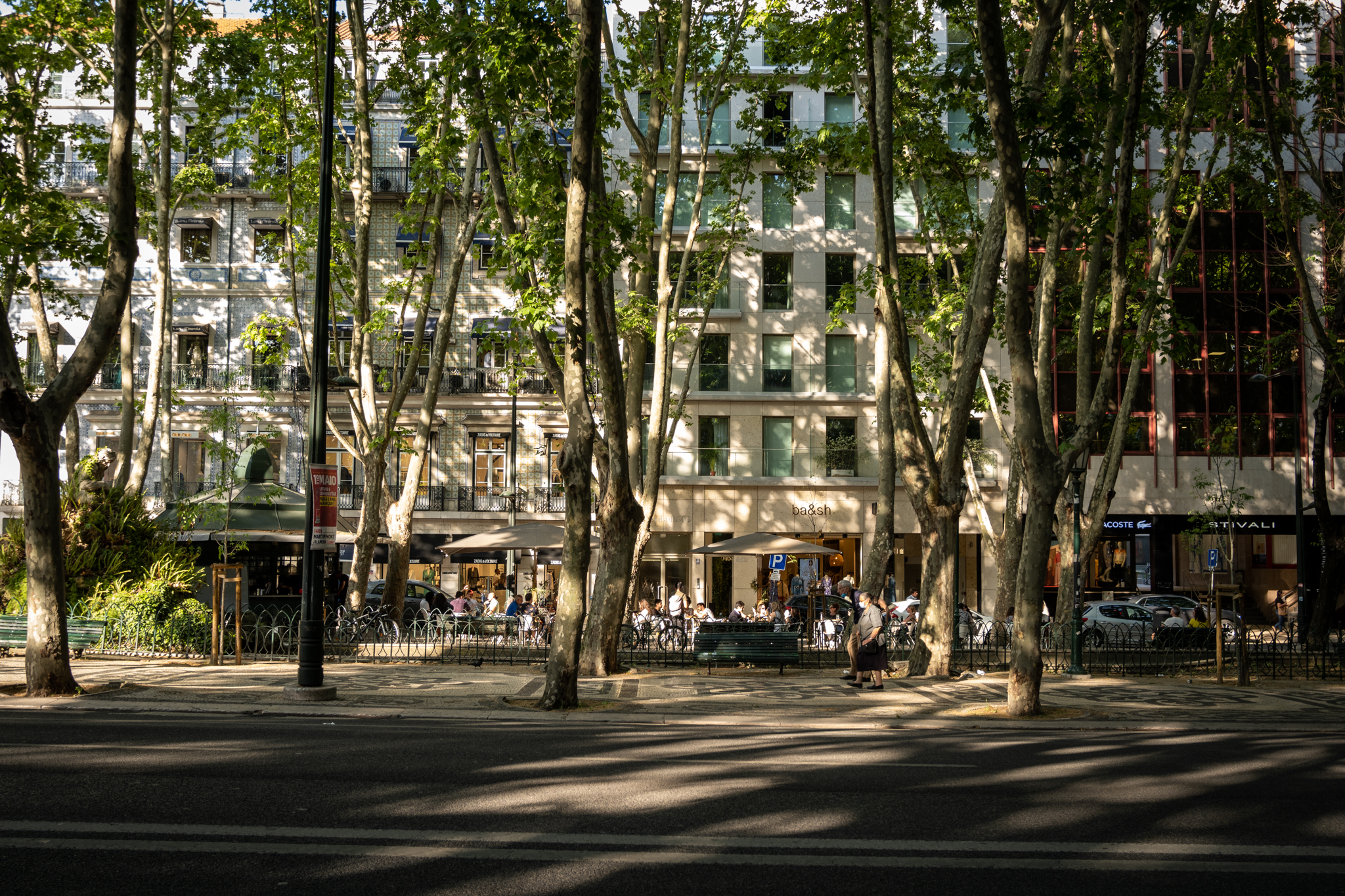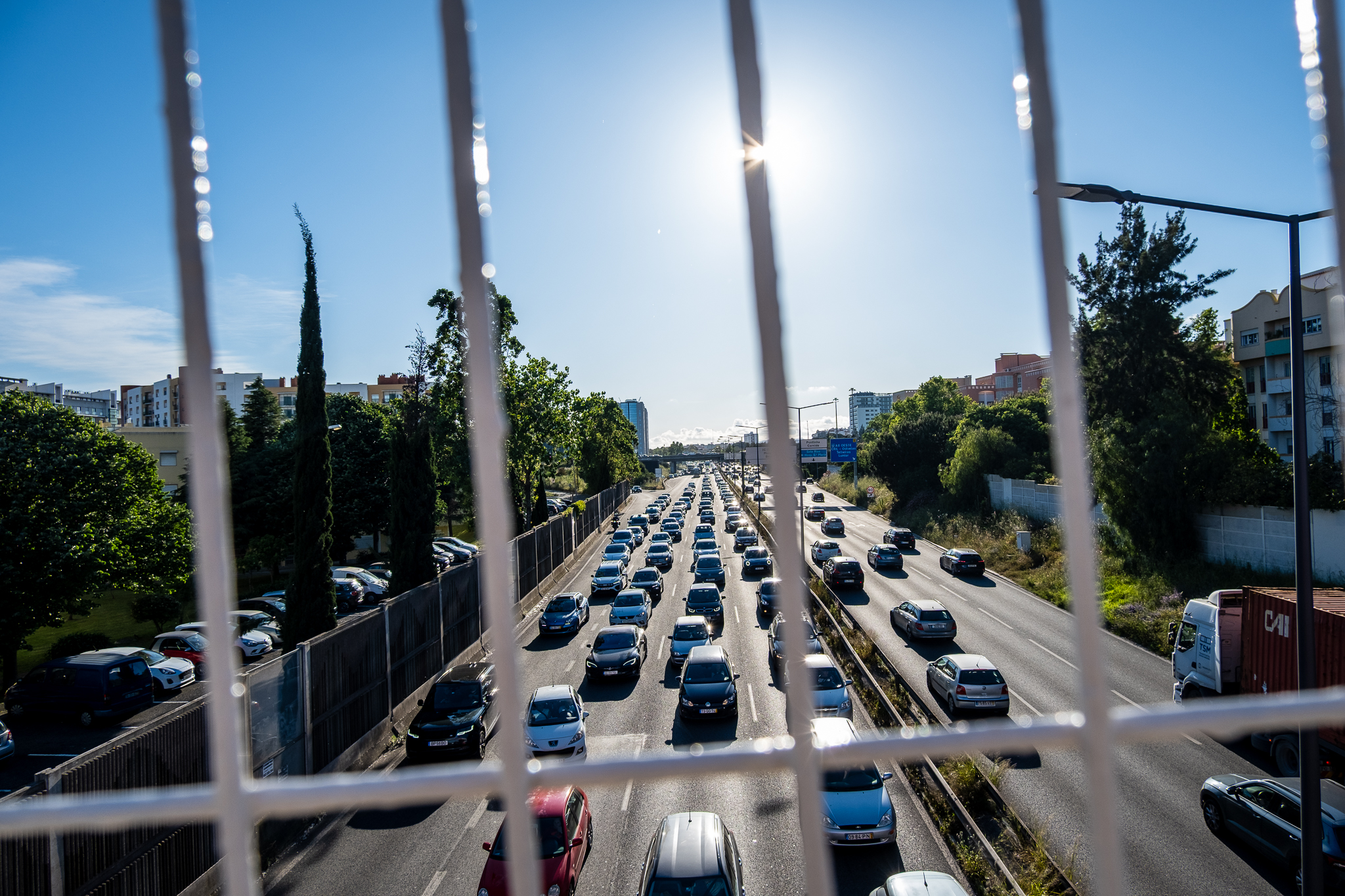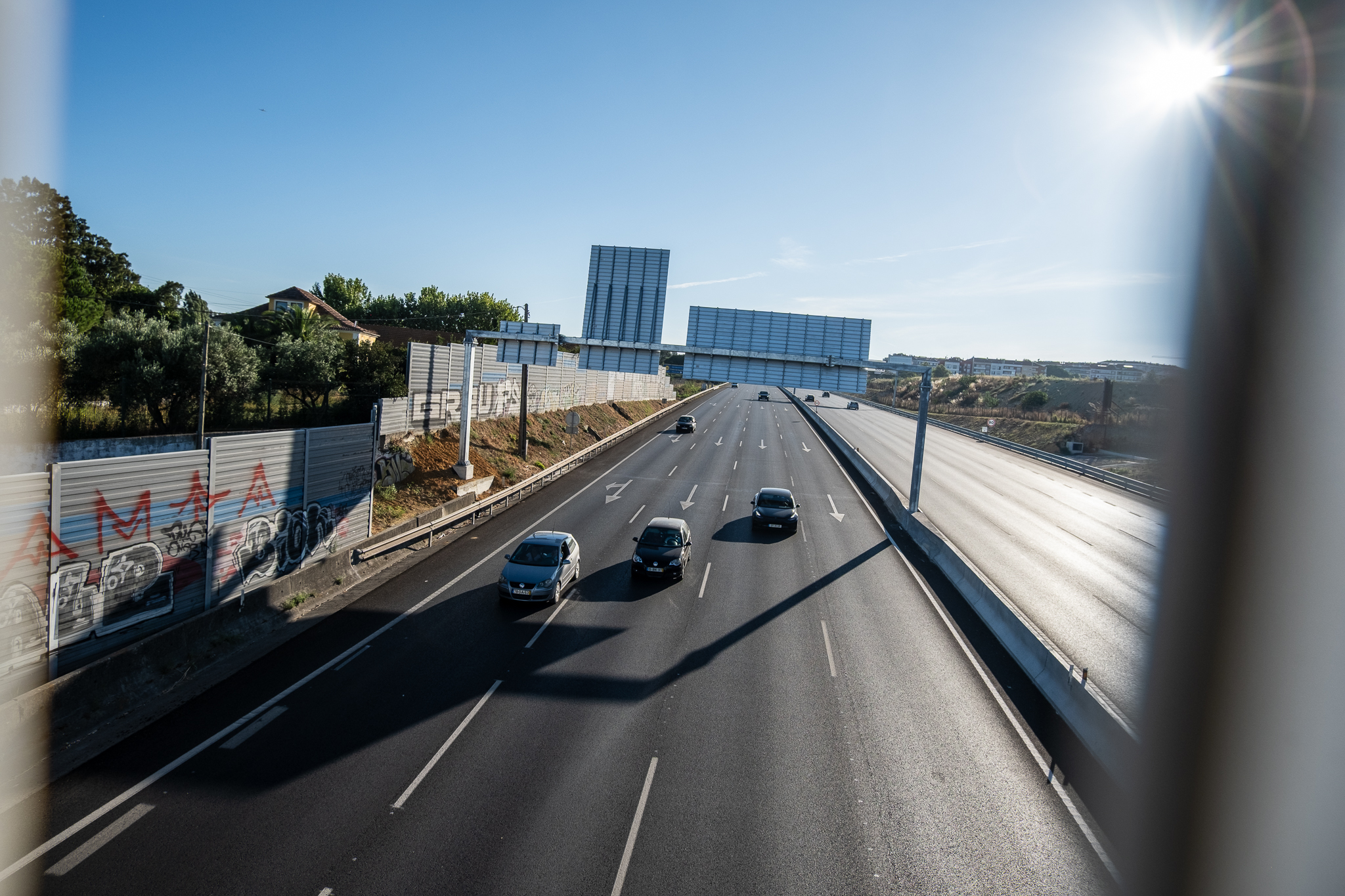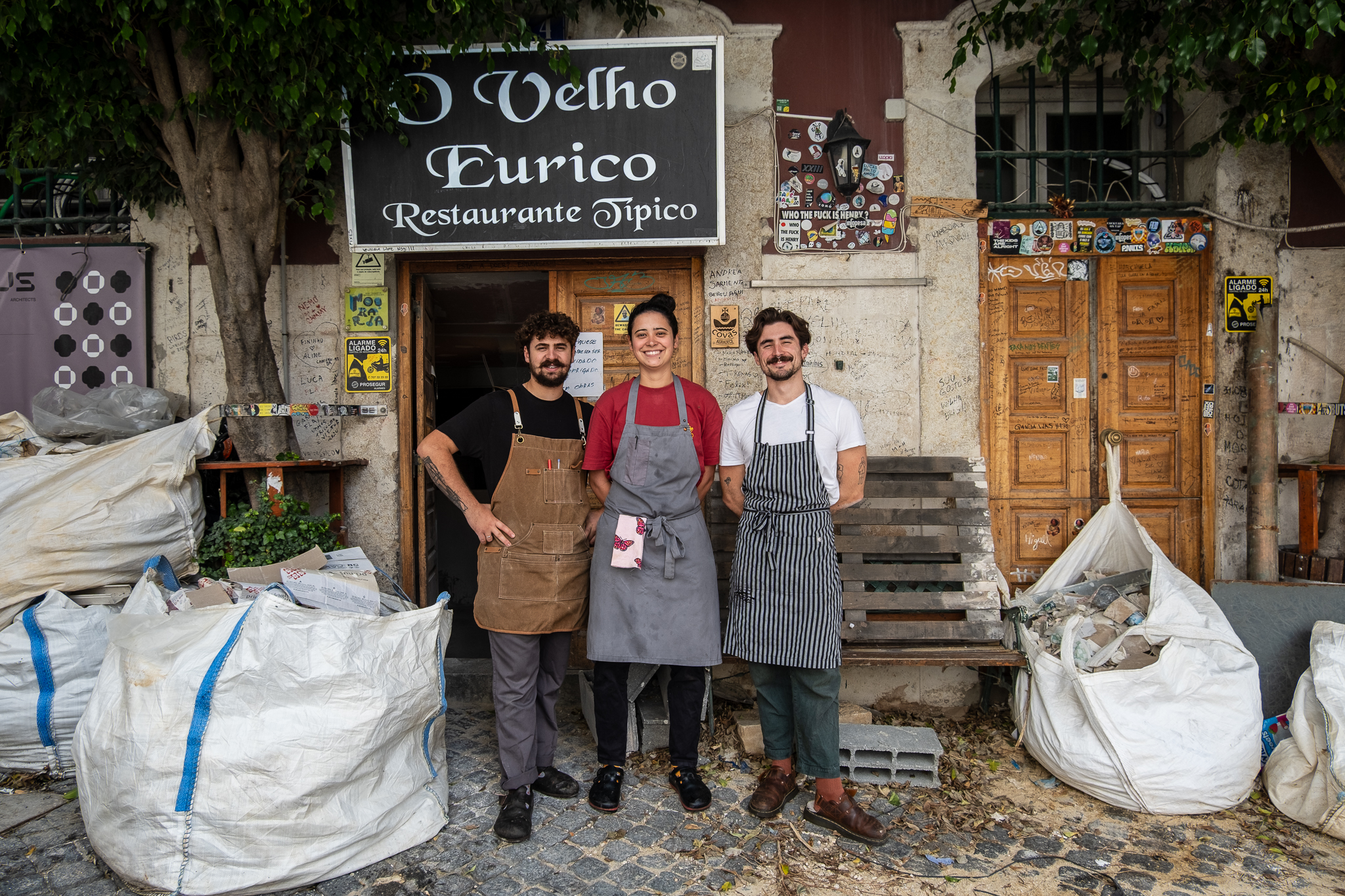This is the story of a proposal approved by a majority in the Lisbon City Hall, with the votes against by the councilmen from Moedas' list. A story that allows us to better understand the ins and outs of municipal politics.

This week's approval by the Lisbon City Council of a Livre proposal that includes, among other measures, the restriction of traffic on Avenida da Liberdade on Sundays and public holidays has been all over the press in recent hours. However, the issue has been simplified so much by the media that it ignores the complexity of municipal politics.
The approval of a proposal does not always mean that it will be implemented in practice. In this article, we'll find out how a city council works and what different paths this Livre proposal can take.
Let's start at the beginning
To understand the topic, we have to start at the beginning and understand how the government of a city works. While in legislative elections we are invited to choose the composition of the Assembly of the Republic, which then forms a government, in a local authority the model is different: in local elections we elect both the composition of the Municipal Assembly and the executive of the Municipal Council.
The municipal executive is, so to speak, the government of our city - it's the executive body, whose oversight falls to the Municipal Assembly (just as the government is overseen by the Assembly of the Republic). The executive includes both members of the list that received the most votes and other lists that were also voted in.
The municipal elections have thus resulted in several winning lists that have been translated into city government - in the case of Lisbon, the current City Council executive is made up of a PSD mayor and 16 councillors from the PSD, CDS, PS, Livre, PCP, BE and CPL:
- six councillors from the coalition New Timesled by the PSD/CDS;
- seven councillors from the coalition More LisbonThis was led by PS/Livre, which split into five from PS, one from Livre and one from the Cidadãos Por Lisboa (CPL) movement;
- two PCP councillors;
- a BE councillor.
Of the 16 councillors, there is a Vice-President, and there are councillors with a portfolio and councillors without a portfolio. A portfolio means that a councillor has a kind of "ministerial portfolio", such as Finance, Housing, Urban Planning or Mobility. At the beginning of each term, all the executive powers (i.e. all the "portfolios") of the City Council are delegated to the person who topped the most voted list, who is responsible for distributing the "portfolios" to the different councillors.
In theory, there could be a PS councillor in charge of Mobility or a Livre councillor in charge of Culture, but for that to happen there had to be a mutual understanding between the other parties and the Mayor. That's not what happened, even though Moedas offered portfolios to the other parties.
All councillors govern
Thus, in a city council it is difficult to draw a line between who is opposition and who is not, because, at least in theory, all the councillors are part of the city government and all councillors - even those without delegated powers in relation to a given topic - can make proposals.
At a recent public town hall meeting, Livre councillor Rui Tavares summed up the workings of the executive as follows: "The people of Lisbon voted, chose and gave us a unique configuration. There's no point in spending four years trying to interpret something whose reality is clear. The legitimacy of those who have a portfolio is unquestionable, and the legitimacy of those who don't have a portfolio is also unquestionable. The people of Lisbon have expressed themselves in a way in which the configuration they gave is what we have here. We'll have to work with it. There's no point in trying to say that there's less legitimacy on one side or the other. Then we won't get anywhere and we won't be able to work."
So even a councillor without a portfolio can make proposals that are then discussed and voted on at a meeting of the city council's executive, where all the councillors can be seated, including the President and Vice-President. If all the councillors or the majority agree with the proposal, it must then be implemented by the council.
That's exactly what happened on Wednesday, May 11, when a proposal from Livre with various measures for the "reducing dependence on fossil fuels in the City of Lisbon" was eventually discussed and approved by the Lisbon City Council. Even with seven votes against from the PSD/CDS leadership, the PCP's abstention allowed the text to be approved by the remaining eight councillors (five PS, one Livre, one Cidadãos Por Lisboa and one BE).
Although the mayor is ultimately responsible for the entire executive of a city council, he or she does not have to be the only one. Carlos Moedas' statements to journalistsOn the subject of Livre's proposal, which has now been approved, it was a question of "a unilateral decision by opposition councillors", which "they seem to be in charge" and that it was the coalition New Times who won the elections, a situation that "the opposition hasn't figured it out yet".
And now, is the proposal moving forward?
In theory, yes. A proposal with the content of a resolution that the "opposition" approves unanimously or by a majority has the same validity as any other proposal, for example, the proposal launched by Carlos Moedas for free public transport. Thus, if Livre puts forward a proposal to reactivate the The Street Is Yours on Avenida da Liberdade, closing this artery on Sundays, then the measure must be implemented if and once approved.
A proposal of President Carlos Moedas that came out of an extraordinary town hall meeting in October 2021, where it was unanimously approved, indicates that "the text of the Deliberations of the Lisbon City Council" acquire "effective as soon as it is approved in draft and signed"what happens immediately after each meeting.
So, in theory, Avenida da Liberdade could already be closed to cars next Sunday for the The Street Is Yours. But in practice, the situation is more complex. Since the Livre councillor has no executive powers in the area of mobility or public space, it's up to the councillor who does - in this case, Ângelo Pereira - to put forward the proposal. He can do this with other councillors and with the Mayor.
Ângelo and Moedas will now have to figure out how the City Council can implement the different measures included in Livre's proposal, including the reactivation of the The Street Is Yours Avenida da Liberdade or reducing the maximum speed limit by 10 km/h. But the proposal could go different ways and may not even be implemented (but we'll get to that). It will at least be up to the Livre to oversee this work and ensure that the various measures approved (around eight in the same document) are implemented.

The different ideas can be integrated into larger packages or initiatives that are already being prepared by Lisbon City Council or that are yet to be outlined. It may turn out that one or more measures have a significant impact on the City Council's already approved budget and then it will have to be decided by the City Council, since the budget will have to be amended. Another way is for the measure to be postponed, for example, until after the major redevelopment planned for Avenida da Liberdade.
This redevelopment, which already has a project drawn up by the municipal company SRU, includes two segregated one-way cycle paths on the sides, several cycle crossings along the avenue, safer crosswalks, wider sidewalks and the reversal of the side traffic lanes, where it would once again be possible to drive along the avenue from top to bottom. With this work carried out, closing the central core of Avenida da Liberdade would be easier, since the sides could be used to cross between Marquês and Restauradores (and vice versa).
In the most pessimistic of scenarios, it may not even be implemented, as we said, and it may fall by the wayside. It wouldn't be unheard of for that to happen. In the previous term, a proposal presented in 2020 by the then PSD councillor Teresa Leal Coelho decided precisely to reverse the directions of traffic on the sides of Avenida da Liberdade with a simple and rapid intervention that would allow the change to be carried out quickly. But the city council, chaired by Fernando Medina (PS), decided not to carry out the change. social-democrat councillor's proposal - approved with the favorable votes of PS, PSD, CDS-PP and BE and the abstention of the PCP - and make the change of traffic directions only in the fundamental intervention already planned for the Avenue.
Also in the previous mandateThe PCP proposed that all new users of GIRA should be given a pool of free hours - which would be "residents in the municipality of Lisbon and students attending educational establishments located in Lisbon, as well as workers with their usual place of work in the municipality of Lisbon" - so that they could try out the service. The measure has never been implemented to date. The same thing could happen with the Free proposal.
An incomplete proposal?
One thing is certain: although in theory it could be implemented as early as next Sunday, if there were a consensus and the political will to do so, the proposal is not ready from a practical point of view. How would Avenida da Liberdade be closed on Sundays? Would it only close one or two blocks or all of them? What would happen to the buses that cross the avenue? Would the sidewalks be available for traffic and, if so, how? Would it be allowed to circulate on the sides of the avenue from top to bottom with the intervention of the Municipal Police? And how would the maximum speed be reduced on all the city's roads? How much would it cost to change all the signs? How would the measure be phased in?
There are many doubts and, unlike proposal for Avenida de Ceuta or more recently to Avenida Almirante ReisHowever, this time Livre didn't present diagrams, assemblies and answers to help visualize the measure in concrete and allow it to be carried out. The party explains that the intention was simply to take the recommendations of the International Energy Agency (IEA) and adapt them to the Lisbon context. In fact, both the closure of streets and avenues on Sundays and the reduction of maximum traffic speeds by 10 km/h were ideas put forward by the IEA as priorities for countries and cities to reduce their dependence on oil by 2.7 million barrels a day in four months, in order to deal with climate change and fossil fuel crises such as the one triggered by the war in Ukraine.
Livre says it submitted the proposal on April 12 and has been waiting for it to be scheduled at a Lisbon City Council meeting ever since. O Lisbon City Council's Rules of ProcedureThe report, which, among other things, defines how executive meetings work, stipulates that councillors' proposals must be discussed at one of the next two meetings:
"Proposals for inclusion on the Agenda must be submitted by the Councillors to the Mayor at least six days before the date of the meeting, and must be included no later than the second meeting following their submission, failing which they will automatically be scheduled for the third meeting following their submission."
- Rules of Procedure of the Lisbon City Council
Between the submission of the proposal on April 12 and the meeting held last Wednesday, May 11, six town hall meetings were held. With the Rules of Procedure yet to be complied with, Livre says that he insisted that the proposal be discussed this Wednesday, with the document being included on the Agenda at the last minute. With a month to go, the proposal was available for a long period of time for analysis by all the councillors. Livre says that only the PCP tabled amendments, having done so the day before.
All the councillors will have had since April 12 to analyze and suggest changes to the proposal. Livre explained to Lisboa Para Pessoas that only the PCP had done so the day before. "As with all the proposals we've presented so far, we've always been willing to reach the broadest possible consensus. Only the PCP councillors sent us suggestions for amendments the day before, which we didn't incorporate because they significantly altered the proposal"wrote Paulo Muacho, spokesman for the Livre party in Lisbon City Hall, on Twitter. He added: "Carlos Moedas has the arrogance of someone who won a minority in the elections but wants to govern as if he had an absolute majority. Livre's proposal has been on the agenda for a month, even in breach of the CML Rules of Procedure, and we haven't received a single contact or attempt at negotiation."
The Livre leader's statements come in response to Carlos Moedas' accusations in the press. The Mayor said that "It's a proposal that shows pride and that shows, in a way, that the opposition isn't realizing that what people want in Lisbon is to be able to decide. I am and want to be the mayor who fights for sustainability, for the changes that need to be made to cities, but not against the people". However, the councillors of the PSD/CDS leadership will have had access to the proposal in question for an extended period, allowing them to suggest changes and include, for example, the need for an extended debate on the The Street Is Yours or reducing speed limits in the city - which would be in line with Moedas' position: to develop a participatory city, built with the involvement of citizens and in dialogue between all parties.

The PCP, in the voice of Councillor João Ferreira, explained why it abstained from the vote: "It's a proposal that consists of a broad and somewhat disconnected tangle of measures of a very diverse nature, ranging from traffic to others that have nothing to do with traffic. Our perception is that it has been drawn up in a way that in practical terms makes it difficult to implement because it aims to touch on very diverse areas, but ends up doing so in a way that lacks consistency.", told Lusa news agency. As examples, João Ferreira pointed out that the proposal does not provide for the involvement of municipal services in traffic changes, a study on their impact, feasibility and form of implementation or consultation with the population, the "economic agents" and the Parish Councils.
"Lisbon City Council has a wide range of municipal services that work on a daily basis in some of the areas covered by the proposal. Is it in anyone's head to go ahead with decisions like those that are there without involving these services, without getting them to study the measures that are proposed, without getting them to study the consequences of these measures, without listening to their opinion in order to improve the application of the measures themselves, to gather suggestions for a possible timetable for their application?"he questioned, although he recognized the "positive sense" of the initiative.
A vote against by the two PCP councillors (or just one) would be enough to disapprove the Livre proposal at the town hall meeting.
The reactions
The reactions from civil society came from different sides. In a live broadcast on Thursday morning on SIC Notícias, Álvaro Covões, director of Everything Is New, expressed his concern about people's access to the city's cultural facilities, which exist in the Avenida area and also in Baixa. Speaking to the Lusa news agencyPedro Leal, president of the Avenida da Liberdade association, which represents stores, hotels, restaurants and services, said that the measure "It came about unexpectedly and without any attempt at dialog or understanding of the impacts it would have. It's a bomb that has just exploded".
Carla Salsinha, president of the Union of Trade and Services Associations (UACS), pointed to the Público newspaper that the measure "it's going to hurt traders a lot" and exemplifies that the great avenues of Paris, Rome or London don't close to traffic at the weekend. "What solves the problem is to have better public transport, with subways and buses every two or three minutes and incentives for people to leave their cars at home." The Junta de Freguesia de Santo António pointed to the Sábado magazine which is a proposal "made by someone who knows nothing about the city he was elected to".
To the PublicFernando Nunes da Silva, a specialist in the areas of Planning, Urbanism and the Environment at the Instituto Superior Técnico, and a former councillor for Mobility in the Lisbon City Council under a PS executive, said that periodically closing streets to traffic is "a beautiful idea" and suggests that parish councils also have a say in the matter. And Manuel João Ramos, president of the Association of Self-Mobilized Citizens (ACA-M), told the Lusa news agency that he was "very concerned" about the situation. satisfied with the proposal but fears that "all these initiatives are focused on tourism promotion and that's what seems negative to me"because "the aim must be to protect pedestrians".
The closure of Avenida da Liberdade to traffic on Sundays was, of all the eight measures put forward by Livre, the one that generated the most controversy. Carlos Moedas, for example, didn't comment directly on the proposal to reduce the maximum speed by 10 km/h, but in this case the positions are also divided. Nunes da Silva points out that it is important to implement Zones 30, which are already provided for in the Municipal Master Plan (PDM), but he has his doubts about reducing the speed on the Segunda Circular from 80 to 70 km/h. In the engineer's opinion, it's not enough to have a speed sign, but rather to invest in a more efficient traffic management system. "altering the urban environment in that area to create elements that strengthen the driver's attention and inhibit excessive speed". The ACA-M states that "It's very important to reduce the speed limit to 30 km/h in urban areas, so that cars can coexist with so-called soft means of transportation. We can't continue to have 50 km/h, especially in shared areas, which can be deadly.".
This morning, the current councillor for Mobility, Ângelo Pereira, and the previous councillor with that portfolio, Miguel Gaspar, were discussing the topic on Rádio Observador. Miguel Gaspar pointed out that the measures contained in Livre's proposal are found in documents such as the Climate Action Plan 2030 (CAP 2030)approved during this mandate, with the PSD voting in favor, and the mobility strategy MOVE 2030This was approved in the previous mandate, also with the favorable vote of the PSD.
The press reports that meetings have been scheduled for the next few days. The issue will now be in the hands of Moedas and Livre.











